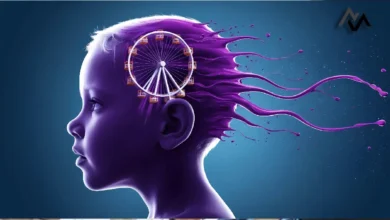The Influence of Social Media Algorithms on Mental Health

In today’s digital age, social media platforms have evolved beyond mere communication tools; they are now influential forces shaping our perceptions, behaviors, and mental well-being. With approximately five billion users worldwide, platforms like Facebook, YouTube, Instagram, and WhatsApp have become integral to daily life. Central to their operation are sophisticated algorithms that curate content to maximize user engagement. While these algorithms enhance user experience, they also have profound implications for mental health.
Personalized Content: A Double-Edged Sword
Social media algorithms analyze user interactions—such as likes, shares, comments, and viewing durations—to create personalized content feeds. This tailored approach fosters a sense of relevance and connection. However, it also has drawbacks. Algorithms often prioritize sensational or emotionally charged content to maintain user engagement, potentially exposing individuals to material that induces anxiety, envy, or inadequacy. This continuous exposure can erode mental well-being over time.
The Mechanics of Infinite Scrolling
Features like infinite scrolling and autoplay are designed to prolong user engagement. Algorithms select content that triggers dopamine release, creating a rewarding yet addictive experience. This design can lead to excessive time spent online, disrupting sleep patterns, diminishing attention spans, and reducing meaningful offline interactions. The pursuit of digital validation may leave users feeling perpetually unfulfilled.
Cultivating a Culture of Comparison
Algorithms tend to amplify content that elicits strong emotional reactions, often showcasing idealized lifestyles. Exposure to such content can lead individuals, especially adolescents and young adults, to compare themselves unfavorably to others. This comparison can result in decreased self-esteem, heightened anxiety, and depression. Notably, platforms like Instagram have faced legal challenges for promoting content that negatively impacts mental health, highlighting the need for greater accountability.
The Formation of Echo Chambers
By presenting content aligned with users’ existing beliefs, algorithms can create echo chambers that limit exposure to diverse perspectives. This reinforcement of existing viewpoints can hinder critical thinking and contribute to increased polarization and social tension. The resulting isolation may exacerbate feelings of loneliness and anxiety.
Mitigating the Impact: Strategies for Users
To navigate the challenges posed by social media algorithms, consider the following strategies:
- Limit Usage: Set specific time constraints for social media engagement to prevent overuse.
- Diversify Content: Actively seek out a variety of content to counteract algorithmic biases.
- Critical Consumption: Approach online content with a discerning mindset, recognizing its curated nature.
- Prioritize Offline Interactions: Engage in real-world activities and relationships to maintain a balanced lifestyle.
The Path Forward
While social media platforms offer valuable opportunities for connection and information sharing, it is crucial to acknowledge and address the psychological effects of their algorithmic designs. By implementing mindful usage practices and advocating for greater transparency and ethical considerations in algorithm development, users can mitigate potential negative impacts on mental health.




